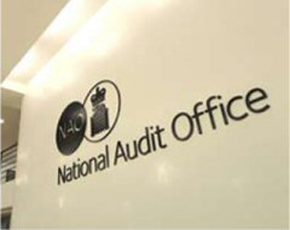The government must integrate the various strands of its IT strategy to realise cost savings, Amyas Morse, comptroller and auditor general at the National Audit Office (NAO), has warned.
Speaking at Intellect’s World-Class Public Services conference, he praised the direction of the government’s strategy: “I see good things in new ICT strategy and a determined, concerted effort to move things forward. There is more engagement between owners and directors.”

But Morse said integrated planning was needed to bring the various strands of strategy together. Lean methodologies were not always interpreted across the whole enterprise, he said.
“I want to see more enterprise-wide modelling. [We are seeing] significant efforts from the ERG [efficiency and reform group], not just in IT, but managing government property. We are seeing a lot of efforts going in the same direction, but it is not necessarily accompanied with integrated change planning,” he told delegates.
“Without integrated change, we risk losing benefits or risk having something judged a failure, which might have been a success,” said Morse.
Contemporaneous measurement practices were also needed, he said, with the point of measurement being to "discover the reality of dynamic on the ground".
Morse said a more efficient civil service would be conducive to better SME engagement, as small companies often cannot afford lengthy procurement practices. “We are perhaps going to a more compact and competent government.”
Capability is also key, he said, and the strategy won’t be delivered unless we start focusing on skills and experience as being just as desirable as being a very bright generalist.
The interweaving of IT into projects needs to be a key in the future, he said.
Bernard Jenkin, MP and chair of the Public Administration Select Committee (PASC), agreed that better skills were essential for driving through change.
He told delegates the government had made a mistake by seeking consultancy advice from the same companies that were offering IT services, as this had resulted in a conflict of interests.
“The crunch recommendation," he said, "is how central government acquires skills so it has people who understand their roles, tasks and responsibilities to control infrastructure and technology expenditure much more acutely than they do.”
Jenkin singled out the Post Office’s reprocurements for managed IT services as good procurement practice in government, citing its 100-strong in-house IT team as an important factor to its success. He also praised the Department for Work and Pensions' use of agile methodology with Universal Credit.
There is a tendency to start from scratch and create new systems, he said, but this approach led to increased risk.
Jenkin said if Facebook could operate at the scale it does without using top-down proprietary systems, then so could Whitehall.
“The question of migrating data to new systems should avoid a big bang approach. Universal Credit is doing that rather than big bang,” he said.
“We have created in the public sector a very risk-averse culture, and that has put costs up and actually increased risks. People are so frightened of making decisions because they can’t prove value, [but they need] the ability to spend a bit of money on something that might not work – that seems the innovative approach needed to re-energise [practices].
“When looking for new IT capability, it should be possible to spend money to assess if one [solution] is going to supply something interesting, and then team up with a service integrator [to deliver it],” he said.





